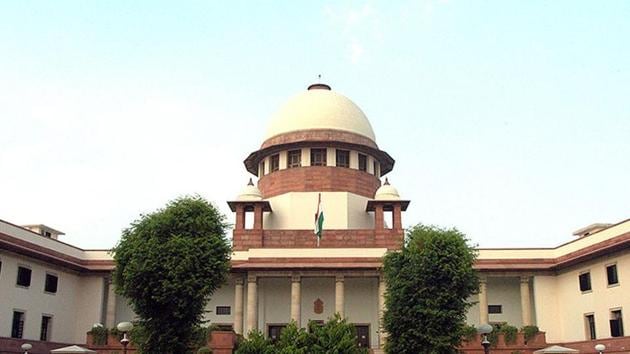Petition in SC against Cong-NCP-Sena alliance
The petition was filed by Surendra Indrabahadur Singh, a voter from Maharashtra’s Dindoshi constituency, who argued that the Shiv Sena, NCP and Congress were trying to defeat the electoral mandate by forming the alliance. It is yet to be admitted.
A voter from Maharashtra filed a petition in the Supreme Court on Friday, seeking to stop a post-poll alliance of the Shiv Sena, Nationalist Congress Party (NCP) and the Congress from forming a government in the state , where the three parties have been discussing a partnership after the parting of ways between the Bharatiya Janata Party (BJP) and the Sena

The petition was filed by Surendra Indrabahadur Singh, a voter from Maharashtra’s Dindoshi constituency, who argued that the Shiv Sena, NCP and Congress were trying to defeat the electoral mandate by forming the alliance. It is yet to be admitted.
Filed through advocates Sriram Parakkat and MS Vishnu Shankar, the petition made the case that the parties were opponents in the October 21 state assembly elections, in which the Congress and NCP had together taken on a BJP-Sena alliance.
The BJP emerged from the elections as the single largest party in the 288-member assembly with 105 seats followed by the Sena with 56, the NCP with 54 and Congress, 44. The BJP’s efforts to form a government with the Sena ran aground after the latter insisted on an equal sharing of power and rotational chief ministership -- demands the former wasn’t willing to concede.
Maharashtra came under President’s rule on November 12 after governor Bhagat Singh Koshyari informed the Centre that no party was in a position to form a government
The petitioner submitted that the voters of Maharashtra had believed they were voting for the BJP-Sena alliance, known as the Maha Yuti, or the Congress-NCP formation, known as Maha Aghadi. When the results were declared , Maha Yuti won a clear majority with 161 seats, but did not stake a claim for forming government because of differences between the partners.
The grievance of the petitioner is that the Shiv Sena is now teaming up with the NCP and Congress to stake a claim for government formation which, he argued, would amount to a fraud on those who voted for the party because it was in an alliance with BJP.
The petitioner has argued that the Governor is under a constitutional obligation to consider the concept of “popular government”. The present post-poll coalition is based on a power-sharing concept of two political parties (NCP and Congress) who have been voted out by the people, he reasoned.
To back his arguments, the petitioner cited the report of a committee headed by former chief justice of India (CJI) Madan Mohan Punchhi which held that a pre-poll alliance has to be treated as a single party and invited to form government in case of a hung assembly. .
The petitioner also cited the ruling of a seven-judge bench in the SR Bommai v. Union of India case. The Supreme Court held that the governor has to invite the leader of the party commanding a majority in the House or the single largest party/group to form government.
Still, there is no clarity on the expressions “political party”/“group of parties” as stated in the judgment, the petition said.
Because a legislative and constitutional vacuum prevails over this question, the Supreme Court should step in and help fill the vacuum, the petition said.
Speaking to HT, senior advocate Sanjay Hegde said, “Post-poll alliances are not banned by the Constitution. The governor only needs an assurance that a government can be formed which is likely to enjoy a majority in the house. There is no requirement in law much less in Constitutional law that an engagement should necessarily end in marriage.”
”This is a valid argument. The mandate was for the pre-poll alliance of the BJP and the Shiv Sena, it was for a pre-poll alliance of Hindutva parties. Despite this the Sena decided to move not just away from the BJP but also its Hindutva ideology. The voters in many cases voted for Sena where BJP candidates were absent or not represented so they will feel cheated,’’ BJP spokesperson Shweta Shalini said.
“The petition is not worthy of a response from the Congress as it is not in accordance with the Constitutional provisions. There is no clear definition of peoples mandate. Also, there have been instances where political parties of different ideologies have come together, for instance the BJP and the PDP in Jammu and Kashmir etc.” state Congress spokesperson Sachin Sawant said.






